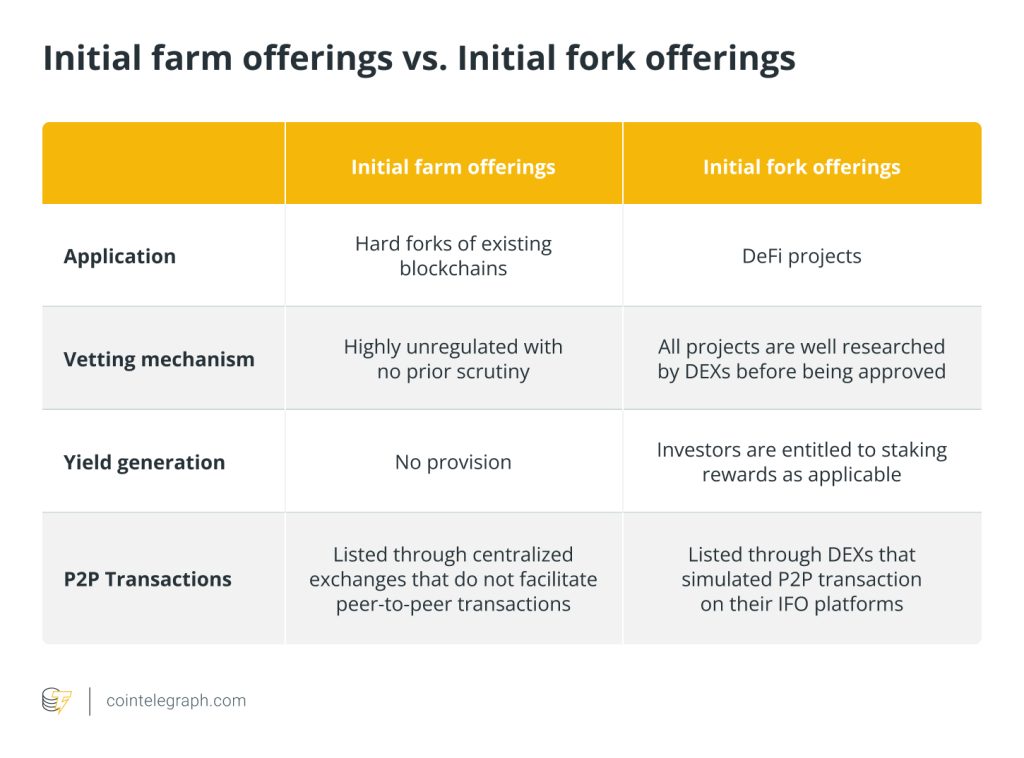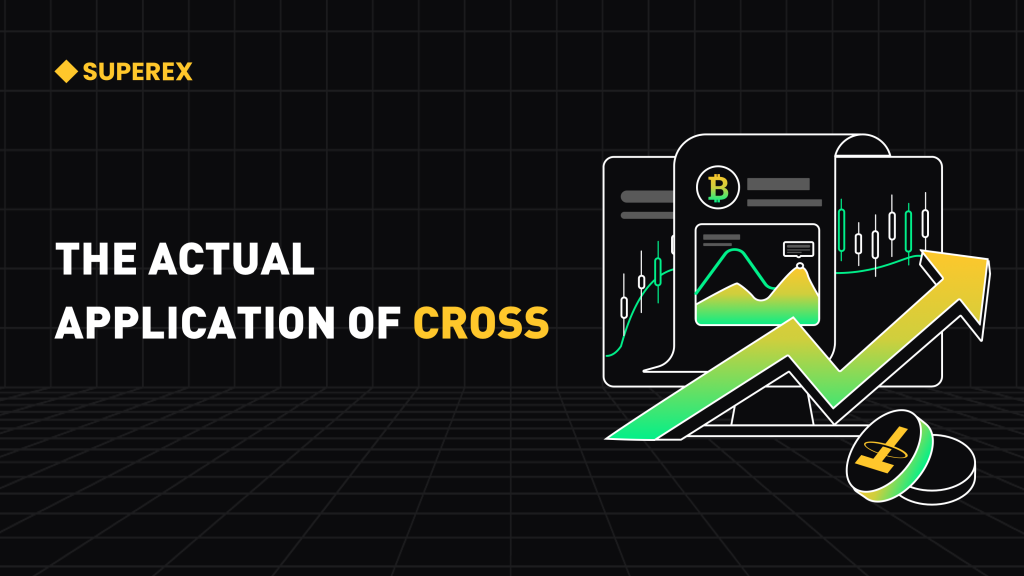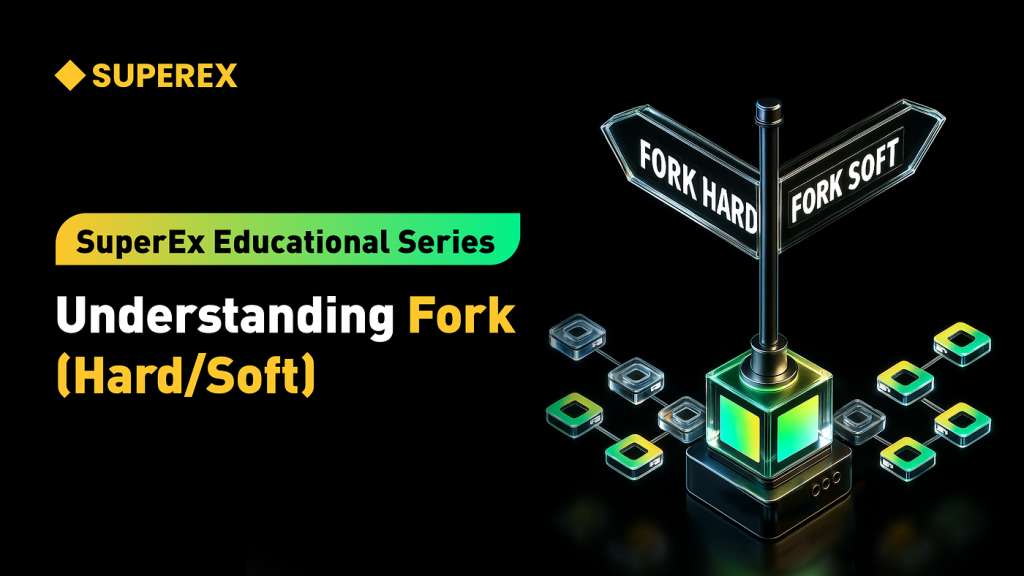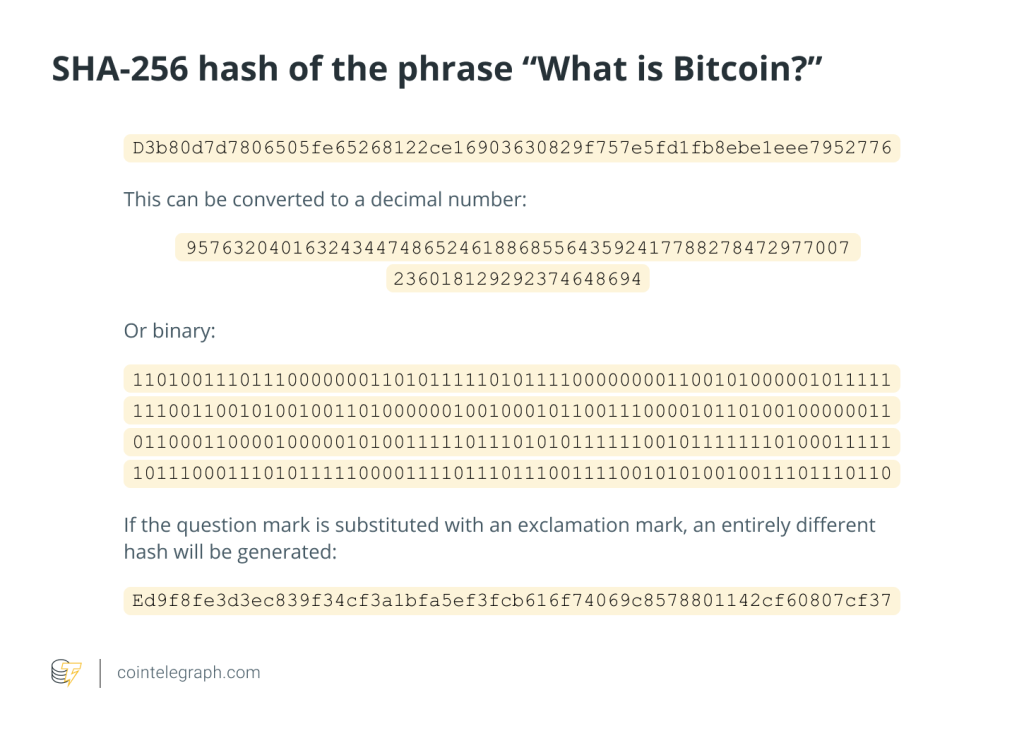Initial farm offerings vs. initial fork offerings: Key differences explained


Back in 2017 when Bitcoin (BTC) first attracted the attention of mainstream retail investors and appreciated by more than 17x to stretch past the $17,000 price level, a clutch of miners and developers ventured into creating their own forks from the Bitcoin blockchain. While a fork occurs when a blockchain’s community votes on a change in the underlying protocol, these new forks were clones of Bitcoin’s protocol, with add-on features intended to capitalize on the economic incentives involved.
Raising funds by means of an initial fork offering, the new forks were released with new names that capitalized on the crypto community’s familiarity with Bitcoin and issued new crypto tokens to participating investors.
Some examples of such forks include Bitcoin Cash, Bitcoin Gold and Bitcoin Platinum, the last ending up being a scam that had initially promised to empower users with low gas and reliable confirmations. However, the number of such initial fork offerings has fallen drastically ever since, due to a shift to layer-2 scaling solutions and waning investor interest in tokens native to such hard forks.
With the tide shifting toward the decentralized finance (DeFi) sector, decentralized exchanges (DEXs), such as PancakeSwap and StreetSwap, introduced an innovative fundraising model called initial farm offering (IFO), specifically catering to DeFi protocols that wanted to raise capital transparently.
IFOs offer DEX users the opportunity to participate in presales farming events and get tokens of vetted DeFi projects before they get listed. Benefitting the entire ecosystem of new projects, DEXs and their users, it is important to understand why IFOs are different from initial fork offerings and how they continue to play a crucial role in promoting innovation within the DeFi space.
What is an initial fork offering?
Before we delve further, it is essential to understand the difference between a soft fork and a hard fork. While soft forks are compatible with a blockchain’s network of nodes, hard forks are equivalent to establishing a new blockchain that has its own community of users and validators.
While Bitcoin XT was the first Bitcoin hard fork that was launched in 2014, user interest eventually fizzled out and led to its early demise. A few more examples such as Bitcoin Classic and Bitcoin Unlimited followed, but they met the same fate soon after launch.
The year 2017 saw many cryptocurrency projects that were essentially hard forks of the Bitcoin blockchain hit the market, with most relying on an initial fork offering to raise capital from crypto venture capitalists and even retail investors.
The mechanism involved mining new crypto tokens native to the forked blockchain and then issuing them via an initial fork offering to generate the funds necessary for further developments. Similar to an initial coin offering (ICO), initial fork offerings remained popular as long as the forking craze lasted, eventually fading away as the preferred crypto fundraising model for blockchain developers.
This could be attributed to the failures of many blockchain protocols that had launched initial fork offerings, leading to rising mistrust among crypto venture capitalists and retail investors alike.
A notable example is that of Super Bitcoin (SBTC), launched by Li Xiaolai, who was also responsible for scam ICOs like that of PressOne, which has seen its token value erode by more than 99% since its launch in late 2017. The fact that many of the projects that came out with an initial fork offering did not even have a white paper is therefore not surprising, leading to calls for a safer crypto fundraising model that could revive public and VC interest.
What is an initial farm offering (IFO)?
Recognizing the need for cryptocurrency exchanges to step up efforts to assess cryptocurrency projects before listing them, a new crypto fundraising model emerged in the form of initial exchange offerings (IEOs).
A welcome departure from both ICOs and initial farm offerings, IEOs were basically crypto fundraising events that were managed by well-known cryptocurrency exchanges that made it both safe and simple for retail crypto investors to invest in new blockchain project token releases.
In that respect, it could be said that IEOs were a precursor to initial farm offerings, an innovative new crypto fundraising model catering exclusively to the DeFi space. To understand how an initial farm offering works, it is apt to equate it to a presales crypto fundraising event vetted by a DEX that offers its users the opportunity to invest in the native token of an upcoming DeFi protocol or project.
A number of IFOs could be launched in farming events conducted by DEXs, providing investors with the flexibility to choose from different projects that want to raise capital. In addition to the capital raised, other benefits of the IFO process for crypto projects include enjoying access to the liquidity pools established by these DEXs and being able to market their product or service with the DEX’s large user base. As a result, they can better deploy the raised capital toward innovating new solutions for the burgeoning DeFi sector, rather than allocating huge sums toward external marketing channels.
From an investor perspective, IFOs are easy to participate in, as they can purchase tokens by swapping the DEX’s native token, eliminating the need to maintain numerous wallets and accessing different blockchains as was the case with ICOs. What’s more, with the DEX putting its reputation on the line by validating projects that launch an IFO, investors can be assured that they would be investing in only reputable DeFi projects.
Additionally, in most cases, the token-holding community enjoys full access and control over future decisions pertaining to the underlying DeFi project, boding well for investor participation and the ultimate success of the project.
By ensuring that all listed projects in a farming event are scrutinized thoroughly by an internal assessment team, DEXs like PancakeSwap have emerged as trusted IFO platforms for crypto investors looking to invest in promising DeFi projects. Moreover, since all transactions or activity remains transparent due to the extent of decentralization involved, crypto fundraising events like IFOs are increasingly gaining ground even in the midst of an extended crypto winter period.

How to be a part of an IFO
Crypto investors need to begin by setting up an account with a DEX known for supporting DeFi projects in launching IFOs. Apart from PancakeSwap, initial farm offerings platforms such as BasketDAO and StreetSwap are also popular for hosting farming events, with crypto investors only needing to stay updated on IFOs being launched by these DEXs. Prior to an IFO event, investors must lock liquidity through their wallet in the form of the DEX’s native token in order to purchase the new token being launched via the IFO.
Investors are credited with the new tokens on completion of the IFO event and are eligible for farming rewards provided by the host DEX. Any funds that remain unspent are returned to participating investors in proportion to their contribution.
Depending on the type of IFO event, investors may also need to put up a participation fee, with unlimited sale type IFOs usually mandating the same. A basic sale in which only a defined number of tokens can be staked per user does not impose such fees and is often preferred by retail investors looking to invest limited capital.
Initial farm offerings vs. initial fork offerings
While both of these crypto fundraising models originated for different entities within the crypto ecosystem, they vary slightly in terms of the capital-raising mechanism employed. While initial fork offerings relied on centralized exchanges (CEXs) to list the newly minted tokens of forked blockchains, IFOs rely on DEXs that have proven to be safer to attract investors through farming events.
Additionally, initial fork offerings were highly unregulated due to the absence of any investigations or research conducted by the hosting CEX, a complete contrast to the trust facilitated by DEXs that explore intricate details of participating DeFi projects before approving them for an IFO.
In terms of how the collected funds are managed, IFOs offer a pre-determined and transparent approach that is starkly different from what initial fork offerings had to offer. Since all transactions are executed through smart contracts on DEXs, there are clear actions that are followed in scenarios where excess capital is raised or the project has fallen short of the target fundraising.
Moreover, since IFOs are affected through yield farming features on DEXs, investors can potentially generate additional income through their tokens that have been staked in an IFO. With DeFi continuing to attract maximum crypto venture capitalist interest even during a particularly downbeat year for the crypto community, the number of IFOs being launched could gain further traction as more DeFi projects adopt this crypto fundraising model to fuel technology development and operational expansion.
However, despite the security offered by DEXs in terms of vetting IFOs, investors ought to conduct their own research before investing. This rule remains sacrosanct irrespective of the type of crypto fundraising model used since bad actors will always find a way to dupe uncanny investors. Tell-tale signs of potential rugs include projects with dubious promoters or developers, unrealistic promises and tight deadlines among others.

The future of crypto fundraising
From the ICO craze of 2017 to the safer and vetted IEO mechanism, the crypto world has seen continuous improvements being made in how new projects raise funds from retail investors and VC funds alike. With IFOs establishing a dedicated mechanism for DeFi projects, crypto investors can now directly invest in promising DeFi startups while also earning yields on their invested capital.
While it is impossible to predict which mechanisms will survive and thrive in the future, there is a clear trend shift toward more responsible and transparent fundraising. Undoubtedly, the crypto ecosystem needs these new and innovative fundraising models that empower retail crypto investors and build trust within the crypto ecosystem.
Written by Murtuza Merchant






… [Trackback]
[…] Here you can find 14161 additional Info on that Topic: x.superex.com/academys/beginner/2519/ […]
… [Trackback]
[…] Read More here on that Topic: x.superex.com/academys/beginner/2519/ […]
… [Trackback]
[…] Read More on on that Topic: x.superex.com/academys/beginner/2519/ […]
… [Trackback]
[…] Read More to that Topic: x.superex.com/academys/beginner/2519/ […]
… [Trackback]
[…] Information on that Topic: x.superex.com/academys/beginner/2519/ […]
… [Trackback]
[…] Information to that Topic: x.superex.com/academys/beginner/2519/ […]
… [Trackback]
[…] Read More Info here on that Topic: x.superex.com/academys/beginner/2519/ […]
… [Trackback]
[…] Here you can find 13969 additional Information on that Topic: x.superex.com/academys/beginner/2519/ […]
… [Trackback]
[…] Find More here on that Topic: x.superex.com/academys/beginner/2519/ […]
… [Trackback]
[…] Find More on that Topic: x.superex.com/academys/beginner/2519/ […]
… [Trackback]
[…] Find More on to that Topic: x.superex.com/academys/beginner/2519/ […]
… [Trackback]
[…] There you can find 27308 additional Information to that Topic: x.superex.com/academys/beginner/2519/ […]
… [Trackback]
[…] Find More on that Topic: x.superex.com/academys/beginner/2519/ […]
… [Trackback]
[…] Here you can find 46395 additional Information to that Topic: x.superex.com/academys/beginner/2519/ […]
… [Trackback]
[…] Info on that Topic: x.superex.com/academys/beginner/2519/ […]
… [Trackback]
[…] Read More on to that Topic: x.superex.com/academys/beginner/2519/ […]
… [Trackback]
[…] Information to that Topic: x.superex.com/academys/beginner/2519/ […]
… [Trackback]
[…] Find More here to that Topic: x.superex.com/academys/beginner/2519/ […]
… [Trackback]
[…] Find More on that Topic: x.superex.com/academys/beginner/2519/ […]
… [Trackback]
[…] Read More on on that Topic: x.superex.com/academys/beginner/2519/ […]
… [Trackback]
[…] Find More Information here on that Topic: x.superex.com/academys/beginner/2519/ […]
… [Trackback]
[…] Read More on to that Topic: x.superex.com/academys/beginner/2519/ […]
… [Trackback]
[…] Find More Info here on that Topic: x.superex.com/academys/beginner/2519/ […]
… [Trackback]
[…] Find More here to that Topic: x.superex.com/academys/beginner/2519/ […]
… [Trackback]
[…] Find More Info here to that Topic: x.superex.com/academys/beginner/2519/ […]
… [Trackback]
[…] Find More here on that Topic: x.superex.com/academys/beginner/2519/ […]
… [Trackback]
[…] Read More Information here to that Topic: x.superex.com/academys/beginner/2519/ […]
… [Trackback]
[…] Find More to that Topic: x.superex.com/academys/beginner/2519/ […]
… [Trackback]
[…] Read More to that Topic: x.superex.com/academys/beginner/2519/ […]
… [Trackback]
[…] Read More Info here to that Topic: x.superex.com/academys/beginner/2519/ […]
… [Trackback]
[…] Information to that Topic: x.superex.com/academys/beginner/2519/ […]